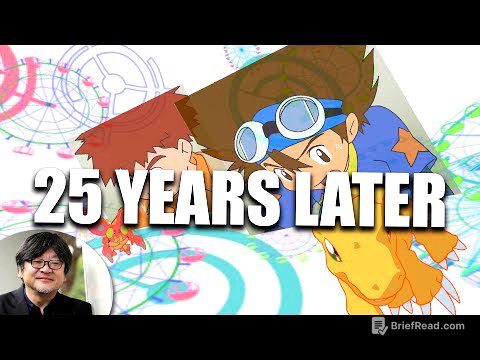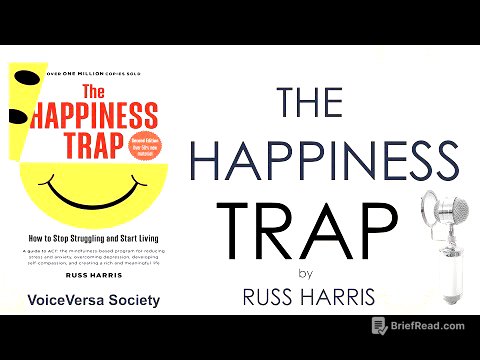TLDR;
This video discusses common financial mistakes made by individuals who achieve early retirement, particularly those who followed the speaker's investment strategies. It highlights the "poverty mindset" that many people carry, even after becoming wealthy, and how this mindset can lead to poor financial decisions. The speaker advises maintaining a frugal lifestyle for at least a year after making significant profits to prove one's ability to manage wealth before making large purchases like houses. He also emphasizes the importance of having a trusted group of advisors to discuss financial decisions, especially in environments where conflicting interests are prevalent.
- Overcoming the "poverty mindset" is crucial for maintaining wealth after early retirement.
- Delaying large purchases for at least a year after achieving financial success helps prove one's ability to manage wealth.
- Seeking advice from a trusted, unbiased group is essential for making sound financial decisions and avoiding conflicting interests.
Introduction [0:00]
The speaker addresses his audience, particularly those who have followed his investment advice and achieved early retirement. He notes that many people, including some within his own circle, make financial mistakes due to a "poverty mindset." This mindset, developed from growing up in poverty, influences their financial decisions even after they become wealthy. The speaker aims to provide insights to avoid these pitfalls, especially in the current market.
The Poverty Mindset [0:30]
The speaker describes how his background and those of his associates, many of whom grew up poor despite having advanced degrees and high-paying jobs, have shaped their financial perspectives. He explains that having lived in scarcity for so long, they developed a "poverty mindset," making it difficult to transition to a mindset of abundance even after achieving financial success. This ingrained way of thinking makes it challenging to spend money on luxuries or improve their living conditions, as they are accustomed to a frugal lifestyle.
Holding Assets and Avoiding Premature Spending [2:21]
The speaker advises his students to resist the urge to spend their profits immediately. He suggests waiting at least a year after achieving financial independence before making significant purchases like building a house. This waiting period serves as a test to prove they can hold onto their assets and manage their wealth effectively. He shares examples of students who quickly lost their profits within months due to their inability to manage their newfound wealth.
Defining Assets and the Importance of Financial Discipline [3:50]
The speaker clarifies that assets include money, gold, property, and other valuables. He cautions against rushing into building houses or acquiring other assets without first demonstrating the ability to preserve the wealth accumulated. He emphasizes the importance of delaying gratification and avoiding unnecessary expenses to maintain financial stability. The speaker shares that he waited until he was 44 to buy a Rolex watch, even though he could have afforded it much earlier, to avoid repeating mistakes he observed on Wall Street, where many people quickly lost their wealth.
The Importance of Long-Term Financial Planning [6:09]
The speaker stresses the importance of making money once and preserving it, rather than repeatedly making and losing it. He explains that after achieving financial independence, his group focused on preserving capital by keeping money in the bank, investing in bonds, or buying dividend-paying stocks. He advises those considering building houses to consult with architects and plan carefully, which can take up to a year, allowing them to make informed decisions and avoid impulsive spending.
Three-Pot System [9:18]
The speaker explains his three-pot system: investment capital, investment portfolio, and expenses. The money from the first two pots is used to fill the expense pot, and the money from the expense pot is never reinvested.
Avoiding the Trap of "Saving Face" [11:30]
The speaker advises against flaunting wealth or discussing finances with others, as it can lead to unwanted attention and requests for money. He notes that in Vietnamese culture, there is a strong emphasis on "saving face," which can make it difficult to refuse requests, leading to financial strain. He emphasizes that it is better to keep financial matters private to avoid these pressures.
The Importance of a Trusted Advisory Group [13:01]
The speaker highlights the importance of having a trusted group of advisors to discuss significant financial decisions. He explains that for transactions exceeding $100,000, he consults with his partners to ensure the decisions are logical and not driven by emotion. He points out that many people who follow his investment strategies lack such a support system, leading to poor financial choices. He suggests that individuals seek advice from unbiased sources who do not have a conflict of interest.
Conflict of Interest [14:38]
The speaker elaborates on the concept of "conflict of interest," where advice is given with a hidden agenda or ulterior motive. He notes that in Vietnam, it is common for advice related to real estate or finances to be influenced by the advisor's personal gain. He emphasizes the importance of seeking advice from individuals who have no personal stake in the outcome to ensure unbiased guidance.
The Laws of Powerful Men [18:21]
The speaker references his "laws of powerful men," emphasizing the importance of independent decision-making, self-correction, and emotional resilience. He stresses the need to value accurate information and recognize potential conflicts of interest when seeking advice. He reiterates that the key to preserving wealth is to overcome the "poverty mindset," design a desired lifestyle, and protect the assets accumulated.
Overcoming the Poverty Mindset: Practical Examples [19:07]
The speaker provides a practical example of how the "poverty mindset" can manifest. He asks if someone who can afford to run the air conditioning all day does so, or if they still opt for a fan to save money. He argues that choosing the fan despite having the means to be comfortable is a manifestation of the "poverty mindset." He emphasizes that it is essential to recognize and overcome these ingrained habits to enjoy the benefits of financial freedom.
The Difficulty of Changing Habits [21:54]
The speaker acknowledges that changing deeply ingrained habits and mindsets is challenging. He admits that even he and his associates have struggled to shake off the "poverty mindset" despite their wealth. He emphasizes the importance of recognizing this tendency and actively working to overcome it to fully enjoy the benefits of financial success.
Applying the 200 Million VND Rule [22:37]
The speaker advises that for any transaction over 200 million VND, one should consult with trusted friends to help make the decision. The goal is not to ask for permission, but to get an outside opinion on whether the decision makes sense.
Seeking Objective Advice [25:28]
The speaker uses the example of someone who has 5 billion VND and is asked to lend 1 billion VND to a relative. He would ask what the goal of lending the money is. If the goal is to help the relative, he would ask if the relative has a history of financial literacy or business acumen. If the answer is no, then lending the money would not make sense. He contrasts this with lending money to someone who is financially savvy, which would be a more logical decision.
Seeking Information vs. Seeking Permission [27:48]
The speaker clarifies the difference between seeking information and seeking permission. He emphasizes that consulting with friends is about gathering information to reduce risk, not about asking for permission to make a decision. He reiterates the importance of trusting the person giving the advice and ensuring they do not have a conflict of interest.
Conclusion [29:29]
The speaker concludes by emphasizing the prevalence of conflicting interests in Vietnam and the importance of being cautious when seeking advice. He reiterates that for any transaction over 200 million VND, it is essential to have a third party review the decision to ensure it is sound. He uses the analogy of hiring a contractor to build a house and hiring a separate inspector to oversee the construction, ensuring there is no conflict of interest.









